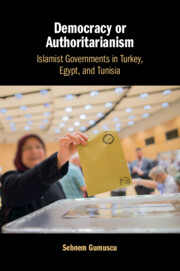Tunisia's Islamist movement Ennahda has announced a separation of political and religious work, apparently reinforcing a “post-Islamist” argument that Islamic parties have left behind religious mobilization. However, the boundary between religious and political fields is highly porous. We ask why the distinction between religious and political activism remains a point of ambiguity within Islamism. Drawing on semi-structured interviews with 48 men and women who participated in the movement in the 1970s and 1980s in Tunis and Sousse, we develop a microlevel explanation of Islamist mobilization. We argue that religious and social Islamist activism is replete with political intent, which worked through three mechanisms: a counter-hegemonic ideology, an activist engagement in social transformation, and a formal organization. These findings add empirical insights to the case of Ennahda, provide leverage in explaining the politicization of Salafist movements, and underscore the legacy of asymmetric party capacities in shaping outcomes in a democratic transition.


